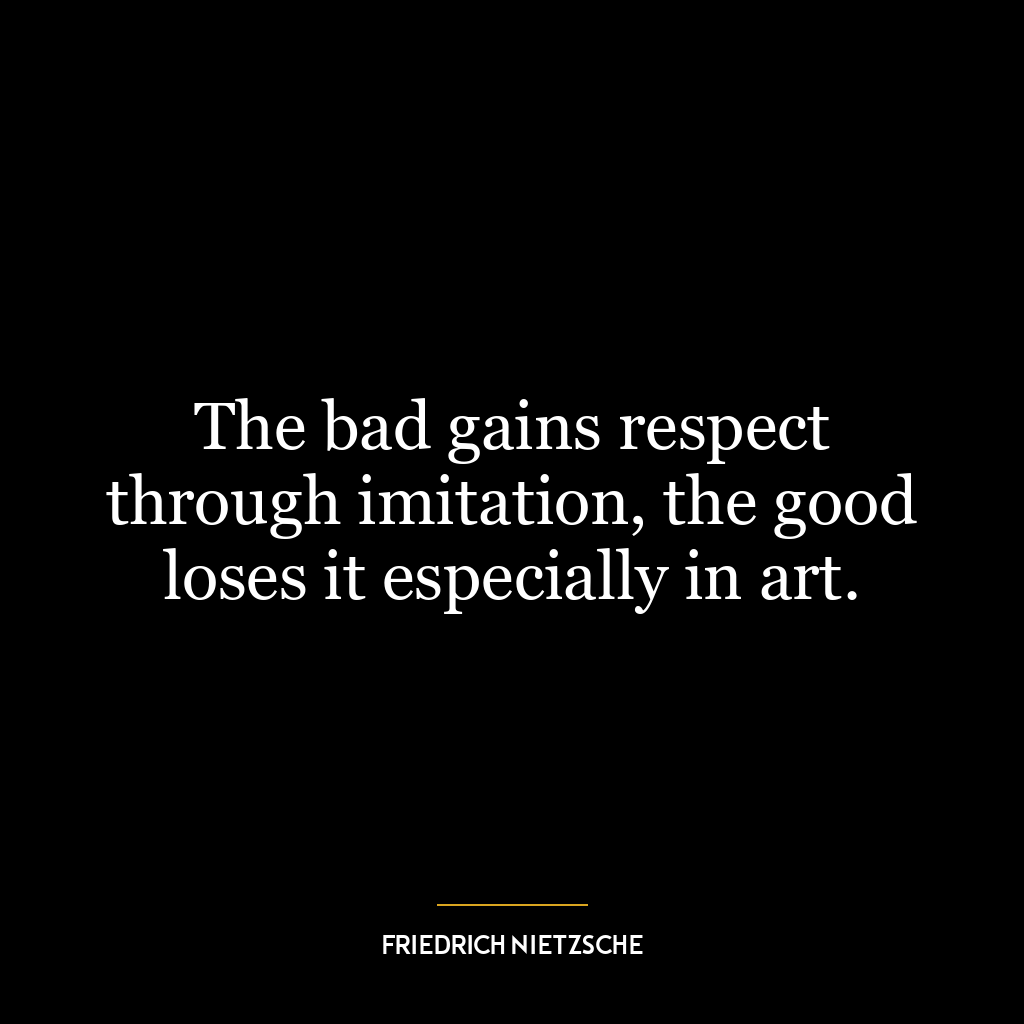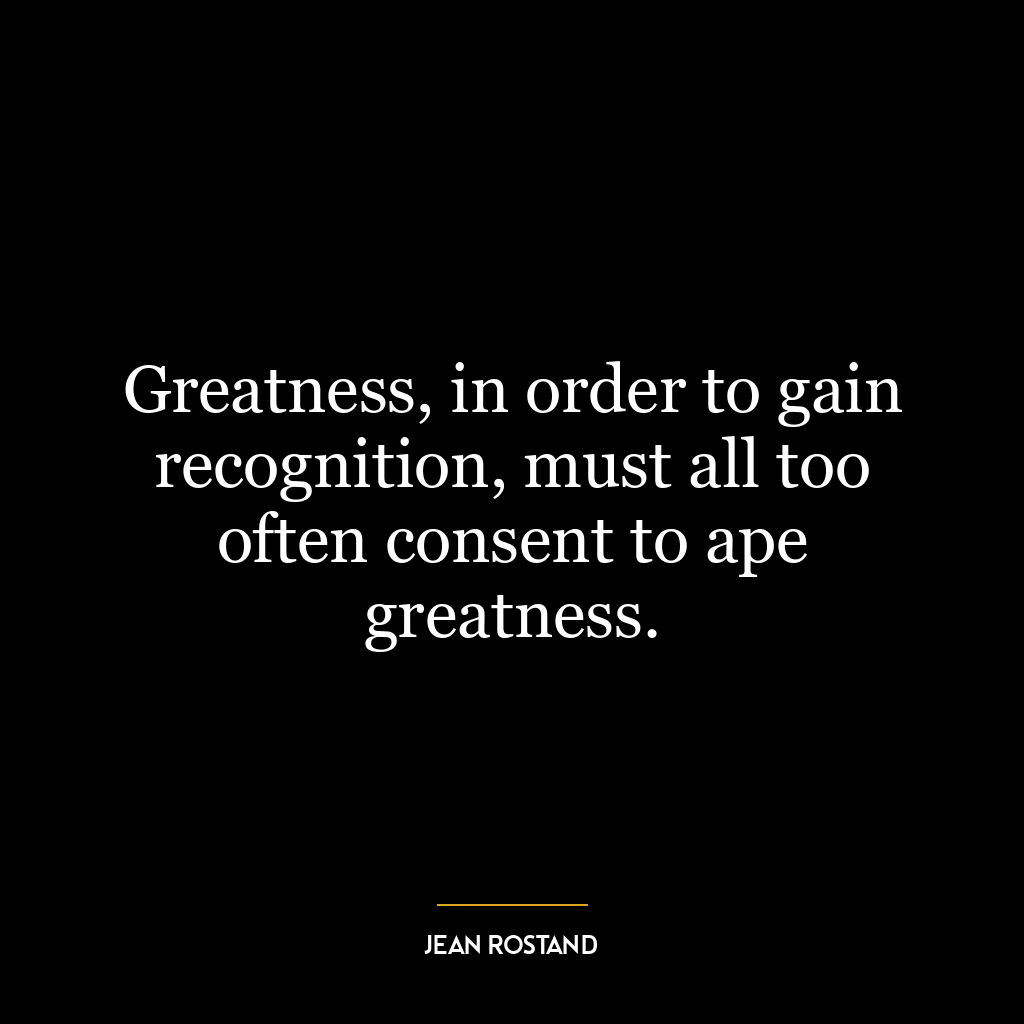Children will imitate their fathers in their vices, seldom in their repentance.
This quote suggests that children are more likely to adopt and mimic the negative behaviors or ‘vices’ of their fathers, rather than the instances when their fathers show remorse or ‘repentance’. It implies that it’s easier for children to pick up on bad habits and behaviors, possibly because they are more noticeable or impactful. On the contrary, acts of repentance which often involve introspection, humility, and personal growth may go unnoticed or unappreciated.
The quote could be seen as a commentary on human nature’s tendency towards negativity bias – our innate propensity to pay more attention to negative events than positive ones. This concept is not only prevalent in parent-child relationships but can also be observed in various aspects of society.
In terms of personal development, this quote might serve as a reminder for individuals – particularly those in influential positions such as parents – to be mindful of their actions and behavior. It underscores how important it is for these individuals to demonstrate positive attitudes and values consistently because those around them are likely observing and potentially emulating their behavior.
In today’s world where social media influencers have substantial sway over public opinion especially among younger audiences, this idea holds significant relevance. Just like children looking up to their fathers, followers can easily imitate the vices displayed by these influencers without necessarily adopting any lessons learned from mistakes they may have made publicly. Therefore, influencers should recognize the responsibility they carry regarding how their actions might impact impressionable minds.
In essence, this quote serves as a call-to-action for everyone who holds influence over others (especially parents) – urging them not just avoid harmful behaviors but also actively exhibit virtues like humility and repentance so these positive traits can propagate through imitation too.







